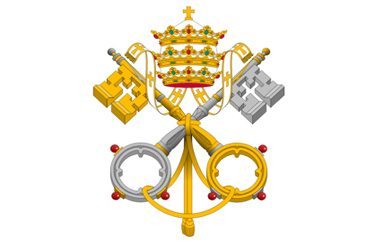Why is Michelle Bachelet Playing into the Holy See’s Hands?
Michelle Bachelet, the head of UN Women, has indicated that she's willing to compromise with the world’s most conservative regimes and water down the UN’s commitment to women’s rights. She shouldn't.

The opening day of the recent United Nations-sponsored Commission on the Status of Women (CSW) brought the worrying news that Michelle Bachelet, under-secretary-general and executive director of UN Women, was willing to compromise with the world’s most conservative regimes and water down the UN’s commitment to women’s rights. Speaking of the language contained in the outcome document, she said, “In any area of the UN we … have to agree on certain language that can represent the same spirit but that can be accepted by everyone.” But what’s accepted by the Vatican and its ultraconservative allies is a far cry from what women need and what women’s rights advocates have fought for over the years.
Bachelet says that she wants the world to move forward in protecting women, but she should expect a fight. Iran, Pakistan, Sudan, and Egypt are blocking the UN’s attempt to ensure that there is no excuse for allowing violence against women. Joining them is the government of one religion that gets to have a seat at the UN and that uses its influence over and over again to beat back attempts to make the world a safer and fairer place for women: the Holy See.
The Holy See has a limited but well-practiced playbook that it follows at international conferences. From the 1992 UN Conference on Environment and Development in Rio de Janeiro to the 1994 International Conference on Population and Development in Cairo to the the 1995 Fourth World Conference on Women in Beijing, the Holy See has obstructed those who would improve reproductive rights. The final declaration in Rio called for health services to “include women-centered, women-managed, safe and effective reproductive health care and affordable, accessible services, as appropriate, for the responsible planning of family size.” The Holy See fought tooth and nail to remove that clause and 20 years later is still taking up that fight. Having failed to convince Catholics the world over to agree with its draconian teachings against all modern methods of family planning and abortion, the Vatican is now seeking to use its privileged position under the banner of the Holy See at the UN to impose its agenda on everyone.
For more than two decades, the Holy See has played an increasingly divisive role at the United Nations. The UN is a consensus-driven environment where one stubborn, dissenting party can shake and sometimes topple agreements shared by the rest of the members. Diplomats, policymakers, and advocates alike have drawn attention to the Holy See’s intransigence in pushing its agenda, as well as its tendency to insist on outlier positions that situate it far from those of the prevailing consensus, but no solution to stave off these costly crusades has been forthcoming. The Holy See enjoys preferential treatment due to the UN’s respect for religious freedom, but its dogmatic agenda—at Rio and in other UN conferences—seeks to undermine international consensus on human rights and roll back the clock on norms and principles that are equally valued by UN members.
Just last year, the Holy See tried to undermine women’s reproductive health and rights at Rio+20, the UN Conference on Sustainable Development. The final draft of the conference’s vision document was far from what women’s advocates had originally hoped for. The Holy See and its allies resolutely chipped away at language that affirmed women’s health as well as some of the Vatican’s other bugbears, like reproductive rights, gender equality, and adolescent sexuality. How can anyone agree that women must “have control over and decide freely and responsibly on matters related to their sexuality” while objecting to the mention of their “sexual and reproductive health”? We can expect more of the same this week and next.
The Holy See’s privileged position at the UN has been a subject of debate and dissent since it became a non-member state permanent observer in 1964. And as a new report from Catholics for Choice shows, that status is still problematic and one the UN should reconsider.
The reality is that the Vatican does not in any way represent the views of Catholics around the world. Using terms like “culture” and “religion” as code for imposing their ultraconservative views on the entire world, they have chipped away at basic rights and services—most often for women.
Michele Bachelet should know better. Her opening gambit of going on the defensive was a mistake. Sensing that she’s given an inch, the Vatican will do its best to take a mile. This should not be a fight that the UN should even consider taking on. Expanding and guaranteeing access to basic health-care services for women is not a matter for debate. It’s simply the right thing to do.
